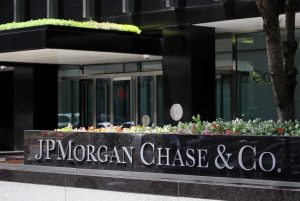India’s securities regulator has barred U.S. high-frequency trading firm Jane Street Group LLC from its markets, alleging the firm manipulated key stock indices to amass $4.3 billion in illicit profits. The Securities and Exchange Board of India (SEBI), in a July 3 interim order, accused Jane Street and its affiliates of orchestrating a scheme to artificially influence the Bank Nifty and Nifty 50 indices through coordinated derivative trades, prompting a sweeping market ban and financial penalties.
A Pump and Dump Scheme
SEBI’s order outlines a “pump and dump” strategy executed by Jane Street on at least 21 index expiry days between January 2023 and March 2025. The firm allegedly bought large volumes of Bank Nifty futures and equities in the morning, sold Bank Nifty options aggressively, and then offloaded futures positions after noon to manipulate closing prices. This pattern, described as “marking the close,” aimed to skew index levels on critical expiry days, SEBI said.
By incorporating local entities—JSI Investments Pvt Ltd and JSI2 Investments Pvt Ltd—Jane Street is said to have bypassed rules barring foreign portfolio investors from intraday cash market trading. These entities reportedly took losses in the cash market to obscure profits from futures and options. SEBI estimates Jane Street reaped ₹36,500 crore ($4.3 billion) in net profits, with ₹43,000 crore from options trading offset by ₹7,200 crore in losses elsewhere. The regulator has ordered the firm to deposit ₹4,843.5 crore ($567 million) in alleged unlawful gains into an escrow account.
SEBI’s Crackdown
SEBI’s response was swift and severe:
- Market Ban: Jane Street and affiliates, including Jane Street Singapore Pte Ltd and Jane Street Asia Trading Ltd, are barred from trading in Indian securities until further notice.
- Asset Freeze: The firm’s bank accounts and Demat holdings face a debit freeze.
- Escrow Order: ₹4,843.5 crore in alleged profits must be deposited in an escrow account.
- Exit Window: Jane Street has three months to unwind open positions, with new trades allowed only if manipulative practices cease.
The firm has 21 days to respond and can appeal via the Securities Appellate Tribunal. SEBI is also probing other indices and exchanges, signaling broader scrutiny of high-frequency trading.
Jane Street’s Defense
Jane Street rejected SEBI’s allegations, calling its trading practices lawful and consistent with global standards. “We are committed to complying with all regulations and will engage with SEBI to address these claims,” the firm said in a statement. Critics note Jane Street ignored a February 2025 NSE warning, which may weaken its position.
Market Ripples
With proprietary firms like Jane Street driving nearly half of India’s options trading volume, the ban could dent market activity short-term. India’s derivatives market, the world’s largest by volume, accounts for 60% of global equity derivative trades. Yet, Jefferies and Goldman Sachs analysts predict other traders will fill the void, minimizing long-term impact on exchanges like BSE. Brokerage stocks, including Angel One and Nuvama Wealth, dipped up to 11% but later stabilized.
The move has intensified calls for tighter oversight. SEBI noted that 93% of India’s 10 million individual derivative traders lost money from 2021 to 2024, partly due to sophisticated firms exploiting market structures. Investor Shankar Sharma slammed exchanges for lax supervision, suggesting profit motives delayed action.
Wider Implications
The ban underscores SEBI’s push to shield retail investors and curb manipulation in India’s $5 trillion equity market. It also highlights tensions between global trading firms and local regulations, with India’s strict rules contrasting the U.S.’s looser stance on practices like dark pools. The case may spur reforms to address systemic risks in derivatives trading, where retail losses remain a persistent issue.
Looking Ahead
The Jane Street ban is a defining moment for India’s markets, testing SEBI’s resolve to regulate high-frequency trading. The regulator’s next steps, including potential tax probes under GAAR, and Jane Street’s response will shape the future of proprietary trading in India. For now, the case exposes the challenges of balancing innovation with oversight in a market critical to global finance.




Be First to Comment